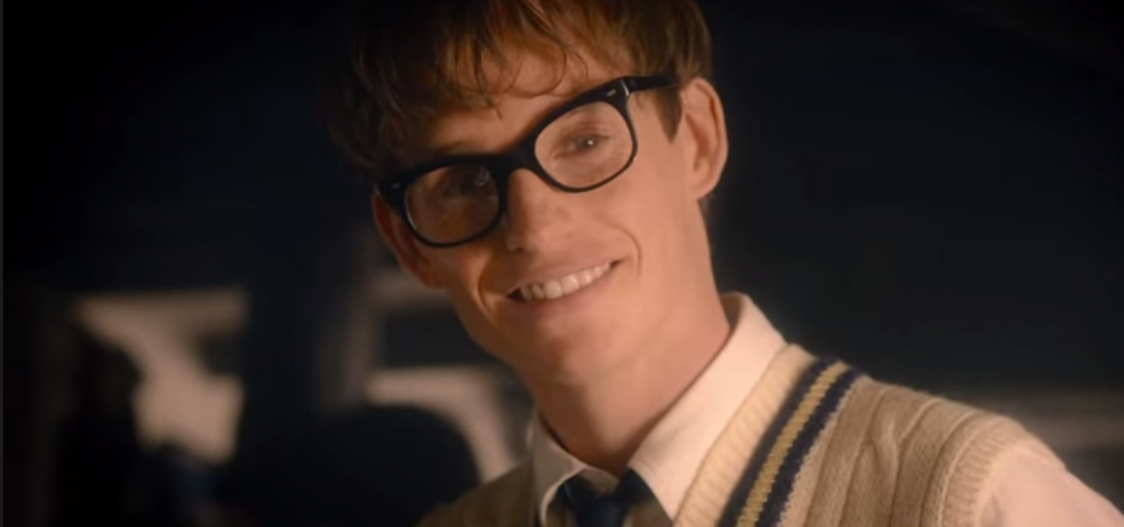
Isn’t it strange how Eddie Redmayne’s Oscar win feels a bit disappointing? Weren’t we expecting a few more gongs this time round? Our conquest of Hollywood is so absolute that the New Yorker review of David Oyelowo’s Martin Luther King grumbled “Our unique American heritage exists onscreen courtesy of talented British actors.” The magazine was bundling up Daniel Day-Lewis playing Abraham Lincoln opposite Jared Harris as Ulysses S Grant and Chiwetel Ejiofor unpicking slavery with Michael Fassbender in 12 Years A Slave.
Sadly for the New Yorker, it’s much, much worse than that. Hollywood’s front line fell to British and Irish actors years ago: Jack O’Connell and Domhnall Gleeson are telling the story of American athlete Louis Zamperini in Unbroken - even Batman, Spiderman and Superman are Brits. Now we’re coming for the heartland: US TV. Which must be particularly galling as all the talk at the writers and the directors guilds is how the serious talent with something to say is creating telly programmes now. And to do that, they’re phoning London.
Here’s the latest role call: Dominic West and Ruth Wilson play joint leads in Showtime’s The Affair, Jonny Lee Miller stars in the CBS show Elementary, Andrew Lincoln, David Morrissey and Lauren Cohan battle zombies in AMC’s The Walking Dead, Rupert Friend smoulders ambiguously in Homeland, Matthew Rhys plays a Russian playing a Yank in Cold War thriller The Americans on FX, then there’s Josh Bowman on Revenge, Charlie Hunnam on Sons of Anarchy, Clive Owen on The Knick, Hugh Dancy, playing FBI agent Will Graham in NBC’s Hannibal.
It’s more than just a hack’s hunch. In 2013 the US Department of Homeland Security reported a 500 per cent increase year on year in the number of visa petitions approved for actors and directors from the UK. The Wall Street Journal wrote: “the truth is that British actors are quietly taking the best roles away from Americans with all the effort of picking raisins from a scone.” There’s even a sketch on comedy channel Slactory where two screenwriters run through every show on US TV and conclude only Breaking Bad, Seinfeld and The Simpsons are devoid of British influence. Which is a shame, given they’re pretty much the best.
Still, we have everything else. Just why is this? There’s some disagreement about pricing – IMDB founder Col Needham believes Brits come cheaper, although Hugh Laurie’s second best paid star on US TV ranking in the House years suggests this isn’t always so. Steven Sodebergh says he picked Brit Clive Owen to play a New York doctor because – confronted with the his character’s drug use, preference for hookers and hints of causal racism – “Clive understands, with the healthy mentality Brits have – I’m playing a character, it’s not me and whatever this thing needs, is what I have to do.”
In part, this is down to the training. “Television is doing much more serious material these days,” says Michelle Ashford, executive producer of Showtime’s Masters of Sex who cast Michael Sheen as Dr William Masters. “So people are looking for well trained actors – and Britain has a huge tradition.”
Even those Brits who haven’t attended LAMDA or RADA can ride their reputation – “there’s a perception that we’ve all performed most of Shakespeare at one time or another and that we’re all classically trained – which I’m not, but I don’t try that hard to disillusion anybody,” admits Dancy. Of course, the training thing goes both ways. The Game and Dancing On The Edge star Tom Hughes studied at RADA and says there’s still very little training for the screen – “it’s all for the stage and you have to adapt yourself when you’re working.” The producers of Game of Thrones – who employ almost exclusively British talent – have to operate a stage-to-screen boot camp to dial down the luvvie hamming.
Perhaps British actors’ most endearing quality is that they’re quite happy to enter a boot camp of any kind. “I think British actors are so grateful to be working when we’re there that we don’t make any kind of fuss,” explains Archie Panjabi, who jumped from East Is East and Bend It Like Beckham into the bisexual investigator Kalinda Sharma in The Good Wife, where she works with fellow Brit Alan Cumming. “We don’t really have a star hierarchy in the UK. We don’t have chairs with our names on. We don’t demand the great light that makes you look good with the makeup and the hair and expensive clothes. We rely on being completely in that character, and I’m sure that’s very attractive.”
For Panjabi, America’s stronger tradition of colour blind casting proved equally attractive. She auditioned for Kalinda against white, black, Asian, middle-eastern and even some American actors. Riz Ahmed, long pigeon holed as “Muslim guy” in British productions like Road To Guantanamo, Four Lions and the Reluctant Fundamentalist found the same thing in LA – in Nightcrawler, he’s Jake Gyllenhaal’s side kick but his skin colour has nothing to do with it.
If there is any Hollywood prejudice, it runs quite the other way. "Unfortunately, America is just not cultivating leading men the way we used to," according to New York City-based casting director Mark Saks. "We live in a very metrosexual country but in the digital age, with sites like Cast It and YouTube, we have access to the world without jumping on a plane. So we are relying on the Scottish, the Australians and the Brits. "
Which underlines that this is still something of a boys game – Wilson and Panjabi aside. Over the past 20 years the two most iconic female Brits portrayed on big screen celluloid were Bridget Jones and Margaret Thatcher – played, of course, by Rene Zellweger and Meryl Streep respectively. With Zellweger in doubt for the third Bridget Jones movie, producers are considering Reese Witherspoon.
It’s crazy to see our unique British heritage exists onscreen courtesy of talented American actors…